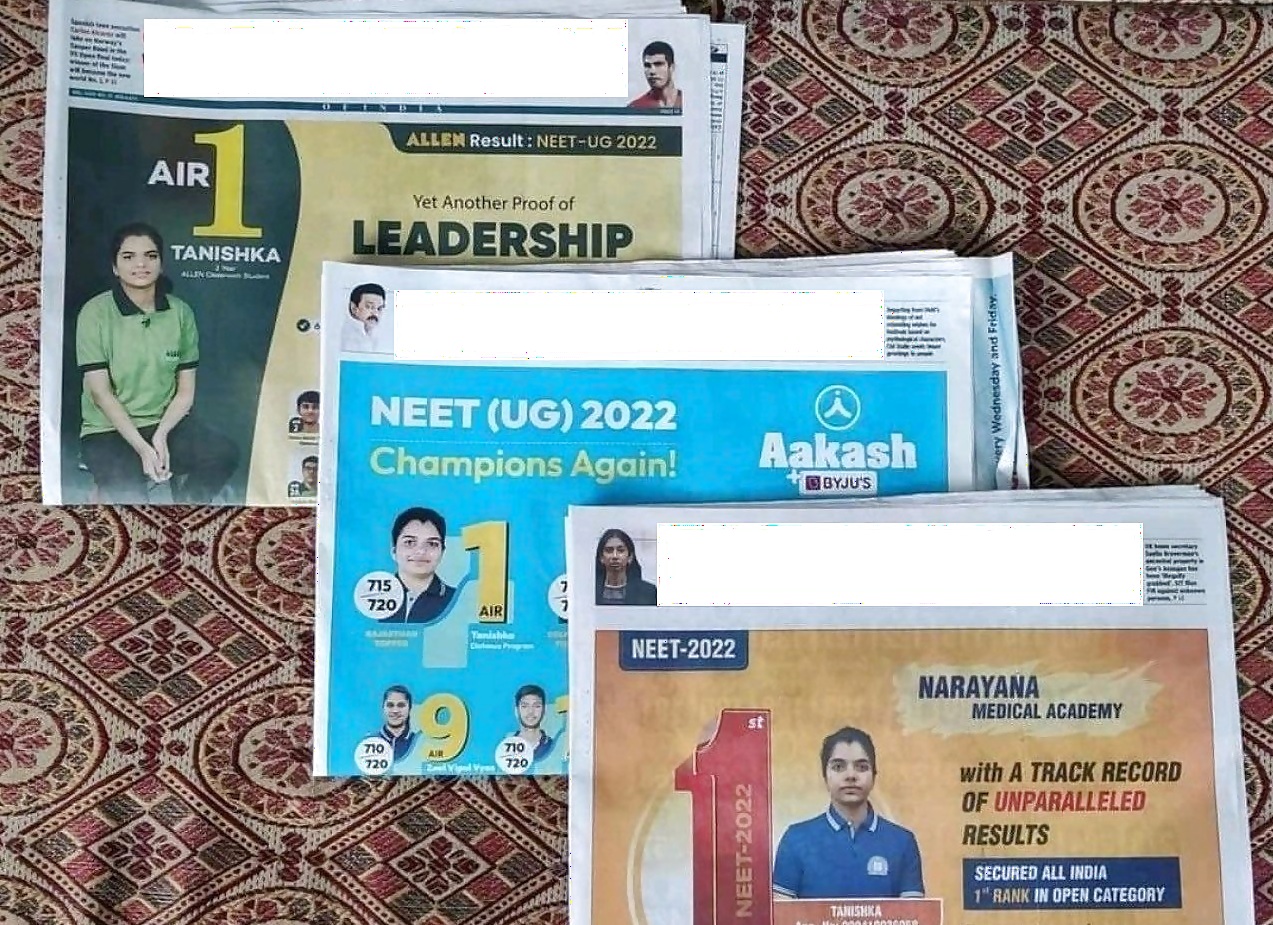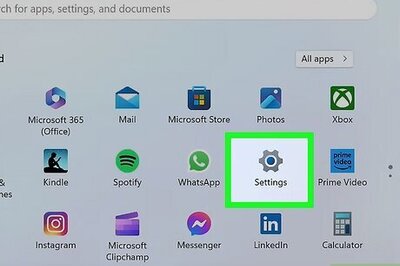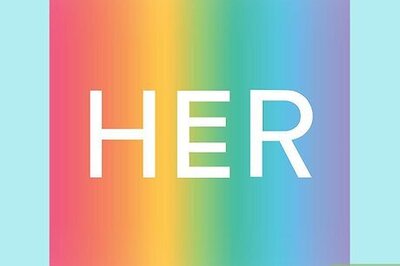
views
Aarav, a 10th class student, spotted an advertisement for a coaching centre on the main page of a national newspaper on a Wednesday in the first week of September. According to the coaching center’s advertisement, Tanishka who ranked first overall in India on the medical entrance exam — NEET, is one of its students. The student’s face reminded Aarav that just a couple of days ago, his coaching centre had also proudly advertised the same top student as its own the day before.
Perplexed by it, Aarav looked up Tanishka online out of curiosity. He discovered that Tanisha was listed as a student at three different institutions.
Aarav, an aspiring doctor, didn’t want to take any chances while he prepared for the National Eligibility cum Entrance Test. He persuaded his father to enrol him in different tuition, thinking that one needs to be associated with more than one coaching institute for better results. His father, too, was surprised and did his own research. Turned out everyone taught Tanishka, albeit in different ways.
One coaching centre told him that Tanishka took the test series from them and that’s how she became their student. He was also informed that whenever they promote such students as their alumni, they carry a small clarification that mentions these details. Another coaching institute said Tanishka took content from them and that’s how she became their student.

When the center’s representative claimed that they advertised her as a “classroom student” on every banner and billboard, Aarav’s father was able to locate the location where she took classes.
These seemed at first to be simple agreements between students and coaching centres, exactly as Aarav and his father discovered. The situation is more complex than first appears.
Some tricked
Numerous coaching centres across the nation begin knocking on the doors of millions of children as soon as the admissions season begins. They typically have a database with them and begin tracking children in eighth grade. The centres then decide how and to whom to pitch their programmes and other offers.
“When educators are told to talk to parents and students at the time of admissions because they have all the data with them, they can pitch various offerings in a customised manner. While this may sound normal as if they are just working with data, the way they paint a rosy picture in front of students and parents, anyone would say yes to whatever they are offering,” an educator said.
One such educator, who asked to remain anonymous, claimed that many applicants to the medical and Indian Institutes of Technology came from tier 2 and below towns and have little exposure to the competitive environment. Patna had the second-highest number of exam takers in 2018 behind New Delhi, with Kota coming in at number four.
The educator continued by saying that it is therefore simpler to deceive such pupils and parents into purchasing products from many coaching centres. He claimed that because top students have a higher chance of being accepted into the nation’s top engineering and medical schools, coaching facilities typically target them.
He recounted a story from a few years back, just before the pandemic, in his anecdote. At one of the most well-known educational institutions in Kota, a student from Jabalpur had registered. She attended that center’s “classroom” as a student.
She had left her Kota hostel room well before the start of her lessons to go buy books. A counsellor from another coaching institute ran into her on the street and gave her a pitch about their materials. He gave her some examples of prior winners who had made use of their material.
“Now just before your classes start, you are all motivated and at that time if someone pitches you something, you often tend to buy that. These are all known strategies and that’s how they do it,” the educator said. “She was a school topper and got 94 percent in 10th standard. So these classes know whom to target and how to do it. She eventually managed to get a very high rank in NEET and so both the classes were able to promote her.”
Bribery charges
While some are tricked into buying courses, some are allegedly bribed to do that. Many coaching institutes target the brightest school students across the country and start chasing them even before they start applying for coaching classes.
Moreover, to get into some of the country’s most-famous coaching centres, one must appear for entrance tests. The entrance test results are shared internally between various centres, which then make a list of toppers based on it.
If a topper has joined centre a after getting good marks in the entrance test, he or she will be targeted by another coaching centre selling at least one of their offerings to the student. However, if these centres can’t persuade the student into buying their offerings, they offer sweeteners, ranging from a few lakh rupees to expensive cars.
“Earlier, these amounts used to be given in cash but as things progressed, over the last few years, students are either given gifts like cars or expensive vacation packages,” said a brand manager of a tuition centre in Kota, requesting anonymity.
In one instance, the older brother of a student was asked to work as an admissions manager for a coaching centre for three months and the ‘gift’ amount was transferred to him as a salary bonus, the brand manager added.
Another educator said parents do not find anything wrong with this because they treat it as their child’s first income for his or her hard work.
Further, parents pay lakhs of rupees as tuition fees and they feel it is okay to take such gifts, the educator added. Typically, annual fees range from Rs 1.5 lakh to Rs 3 lakh. In some cases, coaching centres also allegedly paid students after the results to pose publicly as their alumni.
“As soon as the IIT-JEE results used to come, people would stand in front of the rooms of these students with money. I was so shocked. It completely disillusioned me,” said the ex-cofounder of one of India’s largest coaching institutes. “Many companies would run after them. They would call it scholarships. And parents would accept it, giving permission to these companies to show them as a part of their programme. There is a term for it – buying ranks.”
Some are forced
If you thought all this happens before admissions or after results, you would be off the mark. During the academic year, students appear for several mock tests at their respective centres. The results of these tests are shared internally between centres, just as entrance exam results are shared.
Other coaching classes get to know which students are likely to top IIT-JEE tests or NEET. These centres keep tabs on the students’ daily activities and try to bribe them or trick them into buying their offerings.
“The competition among these classes has gone up tremendously over the last few years and with newer companies also coming in, the fight for students is of paramount importance,” said a person close to a renowned educator in Kota. “If we can claim the toppers, we are able to attract students for next year. The greater number of toppers we claim, the more admissions we get.”
Citing an example of a rival coaching class forcing one of its toppers to buy a distance learning programme during the academic year, the person said the student was shot on camera smoking. The student was told that if he didn’t buy their programme, the picture would go to his parents. The student eventually bought the course.
It also adds to the burden on students, who are already reeling from performance and societal pressure. To be sure, these coaching centres have played a crucial role in shaping the careers of millions of teenagers across the country. But over the years, competition has intensified and the motive has shifted from ‘teaching’ to ‘earning,’ said one of Kota’s veteran educators.
“People should realise that tuition classes only care about the money they make. And they’re willing to do anything by hook or crook to get it. The big tragedy is that now, thanks to the billions of dollars which these startups are pumping into the system, this thing is going to get 100 times worse,” said Aniruddha Malpani, an angel investor and founder of Malpani Ventures, who is a vociferous critic of aggressive selling by edtech companies.
Read all the Latest Education News and Breaking News here




















Comments
0 comment